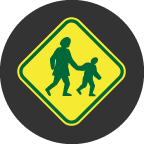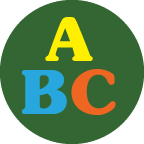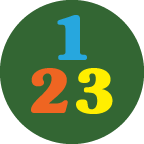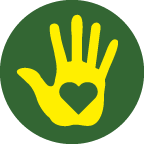 Finger Plays Activities
Finger Plays Activities
Finger-Plays are catchy & fun songs that can be done anywhere with no materials!
-

- Activity Title
- ?
Topic or Theme
Identifying letters in a child's name and listen to ABC (The Alphabet Song)

-


First Name
Brief description of activity or summary of tasks and/or materials used.
-





-
- Surprise
- 26
Fingerplay "Five Little Ducks"
Act out Five Little Ducks
-

Fingerplay "Five Little Ducks"
Act out Five Little Ducks
-


-
- Numbers
- 07
#10
Fingerplay "Ten In A Bed", counting and a small snack
-
#10
Fingerplay "Ten In A Bed", counting and a small snack
-



-
- Physical Activity
- 21
Finger Play "The Itsy Bitsy Spider" (Fine motor)
Practicing finger dexterity with hand motions
-

Finger Play "The Itsy Bitsy Spider" (Fine motor)
Practicing finger dexterity with hand motions
-


-
- Target Words
- 14
Stop, Go, Slow, More
Learn finger play "Red Says Stop" to recite in the car
-

Stop, Go, Slow, More
Learn finger play "Red Says Stop" to recite in the car
-


-
- Lifeskills
- 25
Handwashing
Learn a creative song spelling child’s name while washing hands
-
Handwashing
Learn a creative song spelling child’s name while washing hands
-



-
- Senses
- 11
Sight
Singing and acting out finger play "There Was A Little Turtle"
-
Sight
Singing and acting out finger play "There Was A Little Turtle"
-




-
- Surprise
- 26
Love/Forgiveness
Learning to create song/fingerplay lyrics using tune of "Brother John"
-

Love/Forgiveness
Learning to create song/fingerplay lyrics using tune of "Brother John"
-


-
- Lifeskills
- 25
Body Parts
Using fingerplay "Touch Your Nose" to learn body parts and memorization skills
-

Body Parts
Using fingerplay "Touch Your Nose" to learn body parts and memorization skills
-



-
- Surprise
- 26
Color Fingerplay
Memorization of "Way Up High In The Apple Tree" and target word high
-

Color Fingerplay
Memorization of "Way Up High In The Apple Tree" and target word high
-



-
- Surprise
- 26
Nursery Rhyme
Star Light, Star Bright
-
Nursery Rhyme
Star Light, Star Bright
-



-
- Character Traits
- 13
Caring
Memorizing a “kindness” fingerplay
-

Caring
Memorizing a “kindness” fingerplay
-




-
- Art
- 19
Drawing and learning rhyme "Jack and Jill"
Nursery rhyme drawing
-
Drawing and learning rhyme "Jack and Jill"
Nursery rhyme drawing
-



-
- Art
- 19
Friendship Pillowcase
Decorating a pillowcase with markers and handprints, Learning a Poem
-
Friendship Pillowcase
Decorating a pillowcase with markers and handprints, Learning a Poem
-



-
- Surprise
- 26
Reading and Thinking
Read selections from book "My Very First Mother Goose" or Read/Listen here
-
Reading and Thinking
Read selections from book "My Very First Mother Goose" or Read/Listen here
-




-
- Character Traits
- 13
Honesty
Finger play "I Need To Be Honest"
-

Honesty
Finger play "I Need To Be Honest"
-




Activity Skills Focus
1 Social / Emotional Skills
Skills that develop children’s ability to understand the emotions of others and help children recognize and use appropriate social behaviors (for example, making friends). In the Department of Education report “Guiding Principles A Resource Guide for Improving School Climate of January 2014 it states “strategies such as social-emotional learning programs that address non-cognitive skills, including problem-solving, responsibility and resiliency, can also help students develop the skills needed to fully engage and thrive in the learning environment.”
2 Language Skills
Skills that help children understand and communicate during early childhood. The alphabetic principle (knowing letter names and sound-letter matches) aids in language development and is enriched by verbal interactions with other children and adults (reading aloud and engaging in conversation).
View all Language Skills Activities
3 Math / Science Skills
Math and Science skills help children with problem-solving and reasoning. Exploring numbers, patterns, and measurements by using math manipulatives (beads, counters, pennies) are all ways children develop their math skills. Asking questions about their surroundings, learning a science vocabulary (predict, observe), and having hands-on experiences with their environment can help develop their science skills.
4 Motor Skills
Motor skills are actions that involve the movement of muscles in the body. They are divided into three groups:
1. gross motor skills, which are the larger movements of arms, legs, feet, or the entire body (crawling, running, and jumping)
2. fine motor skills, which are smaller actions, such as grasping an object between the thumb and a finger (pencils or scissors)
3. sensorimotor skills which use the five senses to guide physical motions as in eye-hand coordination.
View all Motor Skills Activities
5 Problem Solving Skills
Skills that help with the construction of thought processes, including memory, problem-solving, and decision-making.
